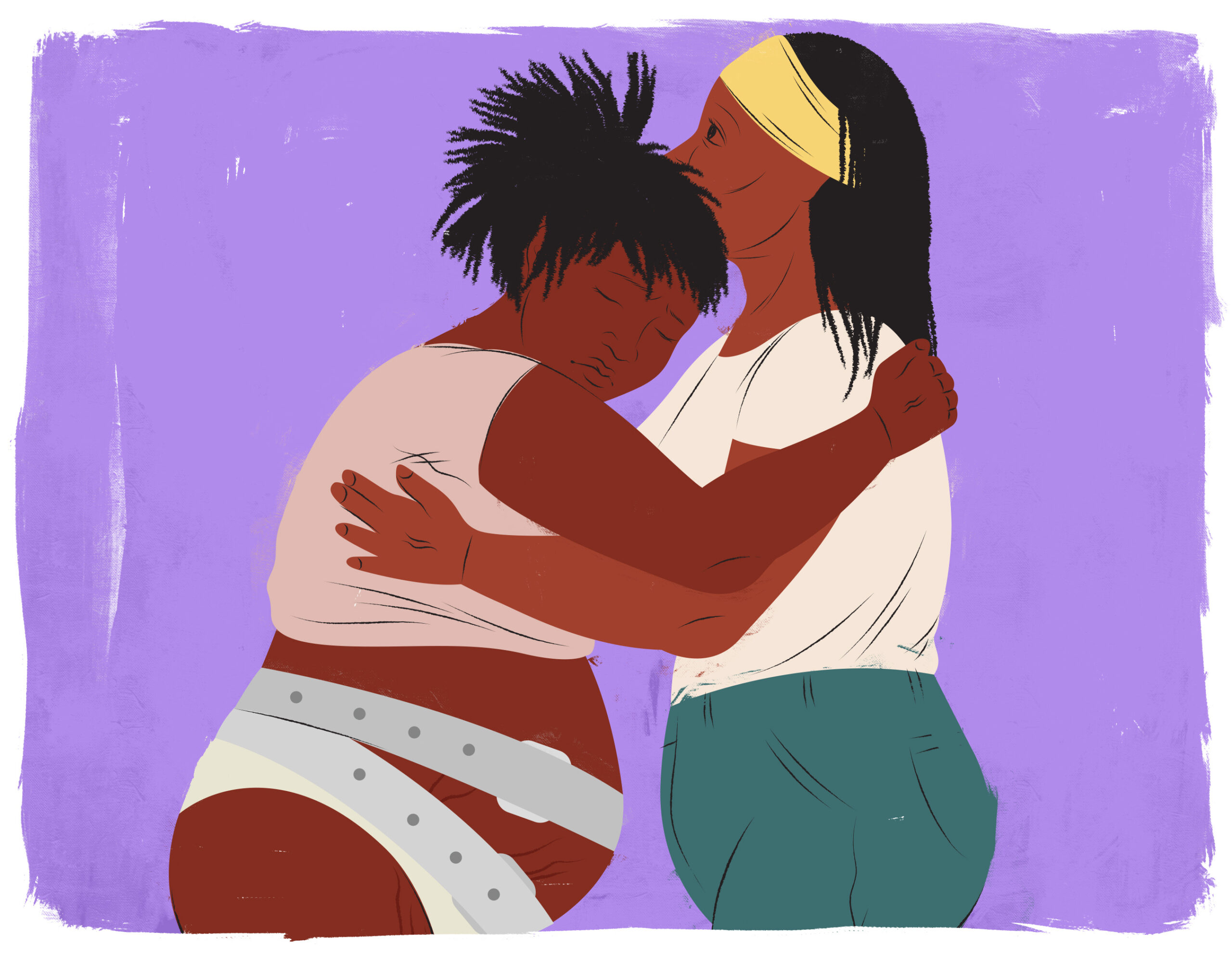[ad_1]
Within the realm of maternal well being, African American ladies face distinctive demanding situations that call for a nuanced solution to start choices. This newsletter delves into the myriad alternatives to be had, that specialize in the professionals and cons of the use of a doula. It addresses the vital factor of subconscious bias and racism in healthcare settings, exploring how those elements give a contribution to top toddler and maternal mortality charges amongst African American ladies.
In america, African American ladies come upon alarming disparities in maternal care, leading to upper charges of toddler and maternal mortality in comparison to their opposite numbers. Subconscious bias and systemic racism give a contribution considerably to those disparities, as docs won’t take the ache of African American ladies critically because of ancient stereotypes.

Ancient views have considerably influenced subconscious biases throughout the healthcare machine, shaping the reports of African American ladies throughout maternal care. Figuring out the roots of those biases is a very powerful for addressing and dismantling the stereotypes that persist nowadays.
Ancient Roots of Bias
The ancient context of slavery and the mistreatment of African American citizens has left an enduring affect at the belief of Black folks throughout the scientific group. All through the technology of slavery, Black ladies have been subjected to brutal experiments with out consent or attention for his or her well-being. This darkish historical past has rightfully contributed to a deep-seated distrust of the scientific status quo amongst African American citizens.
Stereotypes and Ache Tolerance
One prevalent stereotype that has effects on the maternal care of African American ladies is the realization that they inherently possess a top ache tolerance. This stereotype has roots within the ancient narrative that portrayed Black folks as bodily robust and resilient, attributes that have been incessantly exploited throughout slavery.
The misinterpretation of energy as an innate talent to undergo ache has had unfavourable results on how healthcare suppliers means ache control for Black ladies throughout childbirth. There’s a pervasive assumption that Black ladies can undergo upper ranges of ache with out requiring ok ache reduction, resulting in suboptimal care and dismissive attitudes from healthcare execs.
Have an effect on on Ache Control
The stereotype of top ache tolerance contributes to the under-treatment of ache for African American ladies in maternal care. Research have proven that Black sufferers, together with pregnant ladies, are much less more likely to obtain ok ache reduction in comparison to their white opposite numbers. This loss of consideration to ache control no longer handiest impacts the bodily well-being of Black ladies but additionally perpetuates a cycle of distrust between the scientific group and the African American inhabitants.
Dismissive Attitudes
The stereotype of a top ache tolerance incessantly leads to dismissive attitudes from healthcare suppliers. Black ladies reporting ache is also met with skepticism, resulting in behind schedule or insufficient interventions. This dismissiveness could have serious penalties, as well timed and suitable ache control is a very powerful for the full well-being of each the mummy and the kid throughout childbirth.
“In 2021, the velocity of African American mothers demise throughout childbirth was once 2.6 occasions upper in comparison to white ladies.”
– Supply: CDC
It’s crucial to acknowledge that the intersectionality of race and gender compounds biases in opposition to Black ladies in maternal care. The stereotypes surrounding ache tolerance and resilience aren’t handiest racial but additionally gendered, contributing to distinctive demanding situations confronted via Black ladies in healthcare settings.
Addressing those biases calls for a complete means that comes to cultural competence coaching, consciousness campaigns, and coverage adjustments to verify equitable and respectful maternal deal with all ladies, without reference to their racial or ethnic background.
The vital factor of healthcare suppliers no longer being attentive to Black ladies or doubting their talent to self-diagnose is a pervasive downside that considerably affects the standard of maternal care. Actual-life reports spotlight the pressing want for advanced verbal exchange between sufferers and healthcare execs, emphasizing the significance of agree with and mutual working out within the healthcare surroundings.
Dismissal of Signs
Black ladies steadily come upon scenarios the place their reported signs are brushed aside or downplayed via healthcare suppliers. Signs that can be indicative of underlying well being problems or headaches throughout being pregnant are every so often not noted, resulting in behind schedule diagnoses, insufficient interventions, and in some instances loss of life.
Disregarded Considerations All through Exertions
In hard work and supply, Black ladies might to find their considerations sidelined or deemed much less vital than the ones in their white opposite numbers. This dismissive perspective can lead to a loss of well timed scientific interventions, negatively impacting each maternal and fetal results.
Conversation Boundaries
Efficient verbal exchange is a cornerstone of high quality healthcare. Cultural nuances and the loss of culturally competent care can obstruct significant discussion, making it tricky for healthcare suppliers to take hold of the original wishes and reports of Black ladies totally.
Spotting the significance of self-advocacy, Black ladies celebrities like Serena Williams and Beyonce, who each skilled headaches throughout their pregnancies, are increasingly more sharing their tales to boost consciousness and convey about exchange. Advocacy tasks underscore the need for healthcare suppliers to recognize and deal with Black ladies’s considerations actively. This advocacy catalyzes cultural competence coaching throughout the scientific group and a requires a extra inclusive, patient-centered means.
Problem stereotypes that counsel Black ladies search drugs only for ache reduction or are extra prone in opposition to drug use. Emphasize the significance of acknowledging and respecting particular person personal tastes for ache control, selling a extra inclusive and working out solution to healthcare.
[ad_2]










